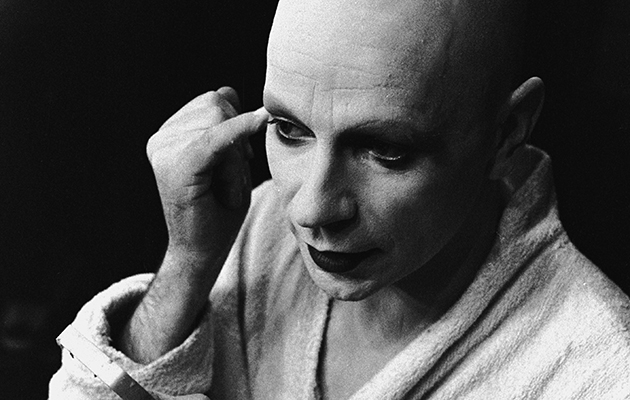Tell us about the Dance Centre?
Those classes appealed to all sorts of people, from short hand typists to ballet dancers and some well-known actors. They were very full. A lot of wannabes rock stars. It was an incredible mix of different kinds of people, all theatrically motivated needless to say. In those classes, let’s talk about David’s first appearance. David wasn’t a natural mover, like Mick Jagger or Michael Jackson, he was stiff. So the first thing I had to do was increase his flexibility, and from then encourage him to express himself through his movement and to communicate to an audience through his movement and through his presence. I taught him the importance of stillness. We spent a lot of time on breathing and improvising. We’d improvise to everything from African drums to Carmen Miranda, Bach, Beethoven, the whole gamut of music, rock’n’roll and so on. He was really quite brilliant in improvising. Needless to say, very popular especially among the ladies. We did a lot of rolling around on the floor. Burning in the depths of Hell or drowning in the oceans to swelling of Scriabin’s music. They were some of the things I taught him. But it was my example I think he learned a lot. He followed very much my style. He was very taken by the bohemian lifestyle, by having no differention between my life on the stage and off the stage he found very appealing. I was the true and the living Pierrot.
At Bateman’s Buildings?
After the first class, we walked – my feet didn’t touch the ground – we walked arm in arm from Floral Street to Bateman Street, where we continued to dance and to create. He became my instant muse and there and then that very evening, a couple of joints and a few glasses and we sketched out a little show that we were going to do together which was to become Pierrot In Turquoise. Turquoise he suggested because it was the Buddhist symbol of everlastingness. He was about to pack to go up to Scotland to go to the monastery.
What would I have seen at the Pierrot In Turquoise show?
You wouldn’t have known what to expect, actually. The show was four people, myself as Pierrot – my favourite character and a personality I have identified with all my life – and my world of the Harlequins. It was yet another show about Picasso’s family of Harlequins and Pierrots, Columbine. David played a protean character called Cloud. He was a kind of balladeer, but he’d also be wearing different masks from time to time, mime different characters.
Laying the groundwork for what he develops later?
Absolutely. What he was learning all this time from me was stage craft. How to be, how to look on the stage, how to make an entrance. Talking about how to make an entrance, I’ve never seen a more beautiful entrance than that of David in his first appearance in Ziggy Stardust through clouds of dry ice as he slowly emerged towards the audience to sing “Lady Stardust”. I really taught him how to be on the stage. How to make an entrance, how to make an exit, and quite a few things in between.
Was he writing during this period?
During the time that we were together, no. He was just writing some for Pierrot and re-writing some for Pierrot. But no doubt he was writing other songs as well that he didn’t play that I probably didn’t have time to listen to because we were too busy working on that particular production. Right up to the opening and then the tour. I don’t think he had any time, certainly he was involved with the present. He took me to meet his dear parents in Beckenham, who I found to be very nice and obviously very proud of their son. They brought down the gramophone and they played his latest record, which was that gnome song – oh, God! – but I had to put on a happy face. He was getting desperate at some point in his career before we met and he wrote that song hoping that at least that might sell – because no one was very interested in his songs. They didn’t strike a contemporary note at that time. They were something else. Many of them hark back to the French cafés and Jacques Brel and his Tony Newley influence and so forth. They were lovely little story songs, songs which often concerned childhood. No one was singing songs about paedophiles or childhood.
Did he ever discuss his disappointment at his career not taking of?
Absolutely not. No he didn’t. When we started working together, he felt that it was taking off. Maybe in another direction, but a direction that maybe was a surprise – but it was a delight. He relished the classes. He was great. He was really passionate and worked very hard in those classes and was a joy to rehearse. We had so much fun during our rehearsals for Pierrot In Turquoise. Years later, we had the same joy, the same fun during the Ziggy Stardust rehearsals, which we did in the vast foyer at the Rainbow Theatre. He was always a joy to work with. He wasn’t always a joy to be with – God knows, our relationship was very up and down. There were tears and God knows what. But it’s the creations that I remember and just the joy.


